Your search “Keep the Death Penalty Abolished fin the Philippfines %20e ”
Article(s)
Moroccan coalition highlights Mrini case
on 12 February 2008
The Moroccan Coalition Against the Death Penalty has been campaigning about the case of Amin Mrini, a Moroccan-born Dutch national sentenced to death in Salé whose appeal will he heard from February 13.
2008
Fair Trial
Morocco
Member(s)
Centre d’Observation des Droits de l’Homme et d’Assistance Sociale (CODHAS)
on 30 April 2020
CODHAS aims to: – Contribute to the defense and promotion of human rights in the province of North Kivu; – Contribute to the promotion of peace and reconciliation; – Contribute to the promotion of gender Art6. Achieving these aims, in particular through the following strategies: – Organization of activities for the extension of Congolese law […]
2020
Democratic Republic of the Congo
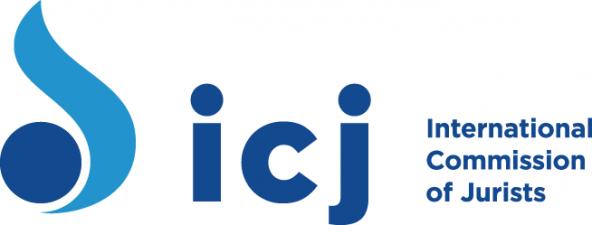
Member(s)
International Commission of Jurists
on 30 April 2020
The International Commission of Jurists (ICJ) is dedicated to promoting rule of law and advancement of human rights around the world. The ICJ statute provides: The Commission carries out activities at the global, regional, national and local level and in particular takes effective steps to: 1. Support and advance the Rule of Law and human […]
Switzerland

Member(s)
ROTAB
on 30 April 2020
The Organisation for Transparency and Budgetary Analysis (ROTAB – Publish What You Pay Niger) is a group of several associations, NGOs and unions in Niger who decided to take part in the worldwide campaign Publish What You Pay. This initiative calls for transparency in the extraction industry, at a time when the murky nature of […]
Niger
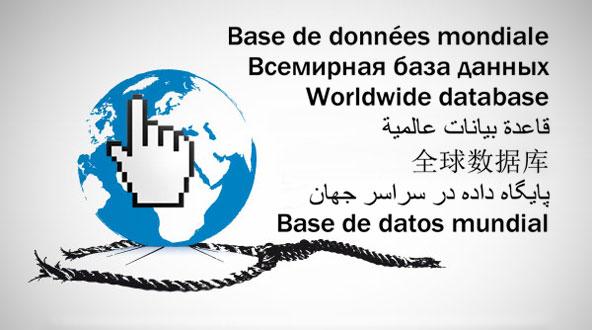
Article(s)
Up-to-date country-by-country death penalty information
By World Coalition Against the Death Penalty, on 18 April 2013
The World Coalition is improving access to legal and statistical information on countries that retain the death penalty.
2013
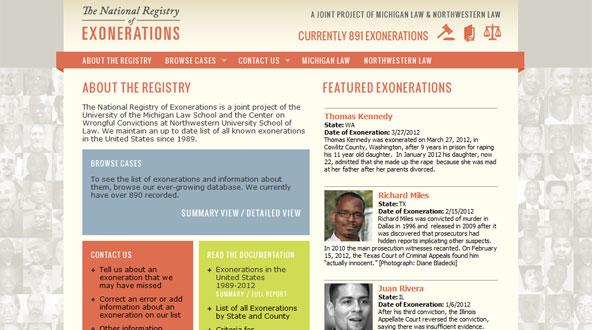
Article(s)
One in nine exonerations in new database is a capital case
By World Coalition, on 26 May 2012
A new online project listing 891 exonerated wrongful convictions in the US includes 101 death sentences.
2012
Innocence
United States
Document(s)
Public Opinion and the Death Penalty Guide
By The Death Penalty Project, on 1 November 2022
2022
NGO report
Public Opinion
More details See the document
When faced with calls to join the majority of states worldwide that have now abolished capital punishment, a key justification, typically relied upon by retentionist states, is that their citizens are not yet ready for abolition, and that political leaders must represent ‘the will of the people.’ The Death Penalty Project produced this resource on public opinion and the death penalty.
- Document type NGO report
- Themes list Public Opinion
Document(s)
Issues Impacting LGBTQ+ Prisoners
By Death Penalty Information Center, on 3 September 2024
2024
NGO report
Cruel, Inhuman and Degrading Treatment and Punishment
Fair Trial
United States
More details See the document
LGBTQ+ people, especially people of color and low income, experience high levels of policing and criminalization, leading to an overrepresentation of these individuals in the incarcerated population. A 2017 study from researchers at the University of California, Los Angeles School of Law, suggests that LGBTQ+ people are three times as likely to be incarcerated than the general population. Once incarcerated, LGBTQ+ people are often subjected to violence from correctional staff and fellow prisoners, as well denied medical care and access to mental health services.
- Document type NGO report
- Countries list United States
- Themes list Cruel, Inhuman and Degrading Treatment and Punishment / Fair Trial
Document(s)
Chinese Netizens’ Opinions on Death Sentences
By Bin Liang and Jianhong Liu, The University of Michigan Press, on 4 November 2021
2021
Academic report
China
Public Opinion
More details See the document
The People’s Republic of China no doubt leads the world in both numbers of death sentences and executions. Despite being the largest user of the death penalty, China has never conducted a national poll on citizens’ opinions toward capital punishment, while claiming “overwhelming public support” as a major justification for its retention and use. Based on a content analysis of 38,512 comments collected from 63 cases in 2015, this study examines the diversity and rationales of netizens’ opinions of and interactions with China’s criminal justice system. In addition, the book discusses China’s social, systemic, and structural problems and critically examines the rationality of netizens’ opinions based on Habermas’s communicative rationality framework. Readers will be able to contextualize Chinese netizens’ discussions and draw conclusions about commonalities and uniqueness of China’s death penalty practice.
- Document type Academic report
- Countries list China
- Themes list Public Opinion

Article(s)
World Coalition elects new decision-making bodies
By World Coalition Against the Death Penalty, on 22 June 2015
The World Coalition Against the Death Penalty has elected a new Steering Committee and a new Executive Board to serve for two years.
2015
Document(s)
Reducing Facial Stereotype Bias in Consequential Social Judgments: Intervention Success With White Male Faces
By Youngki Hong, Kao-Wei Chua, & Jonathan B. Freeman, Columbia University, on 25 January 2024
2024
Article
United States
More details See the document
Published on December 18, 2023.
Initial impressions of others based on facial appearances are often inaccurate yet can lead to dire outcomes. Across four studies, adult participants underwent a counterstereotype training to reduce their reliance on facial appearance in consequential social judgments of White male faces. In Studies 1 and 2, trustworthiness and sentencing judgments among control participants predicted whether real-world inmates were sentenced to death versus life in prison, but these relationships were diminished among trained participants. In Study 3, a sequential priming paradigm demonstrated that the training was able to abolish the relationship between even automatically and implicitly perceived trustworthiness and the inmates’ life-or-death sentences. Study 4 extended these results to realistic decision-making, showing that training reduced the impact of facial trustworthiness on sentencing decisions even in the presence of decision-relevant information. Overall, our findings suggest that a counterstereotype intervention can mitigate the potentially harmful effects of relying on facial appearance in consequential social judgments.
- Document type Article
- Countries list United States
Document(s)
The Death Penalty In Egypt: Theoretical and Practical Study in the Light of Islamic Shariah and International Human Rights Law
By Dr. Mohamed Al Ghamry / Arab Penal Reform Organization APRO, on 1 January 2008
2008
NGO report
arMore details See the document
This study addresses the subject of the “death Penalty in Egypt”, which is an applied theoretical study done in light of the principles of the Islamic law and provisions concerning international human rights law. Egyptian Penal Code No. 58/1937 is the modern penal code that still retains the death penalty in spite of its cruelty and strictness and impossibility of reforming its results or amending them. The laws governing the death penalty in Egypt are considered one of the most deterrent penalties at all levels, general and private, that ensures combating crimes and preserving the interests of society, as well as ensuring stability in spite of the presence of an increasing international inclination led by the United Nations and some international NGOs headed by Amnesty International to abolish the Death Penalty given the difficulty to reconcile between this penalty and obligation to respecting human rights.There is no doubt that the intention to study the legislative system of the death penalty in Egypt, with the purpose of the determination of legality of this penalty and the demonstration of the feasibility of its application for society, is difficult without identifying all the roles and functions caused by the death penalty over successive legal ages in Egypt. When the criminal legislator passes new laws that address crimes in Egypt, in his appreciation, to achieve deterrence and for the purpose of combating crime, the legislator does nothing new in society. The work of the legislature work is a product of an interaction between the proposed legislative articles to solve the realistic problems from which society suffers in a historical moment on the one hand, and the cultural, social, religious, legal and political heritage coming to our society from abroad, may play a key role in the determination of the content of the proposed legislative text in the context of the mutual influence between cultures. In this context, this study begins by an introductory chapter entitled “The Historical Origins of the Death Penalty in Egypt” in which we tried to pin the Egyptian penal legislation to its origin by studying the position of death penalty and its evolution in society. By identifying the historical origin of the Death Penalty in Egypt, we then present an objective view on the future of death penalty in Egypt between retention and abolition. —- Please find document at bottom of web page.
- Document type NGO report
- Themes list Religion ,
- Available languages عقوبة الإعدام في مصر دراسة نظرية وتطبيقية في ضوء مبادئ الشريعة الإسلامية وأحكام القانون الدولي لحقوق الإنسان
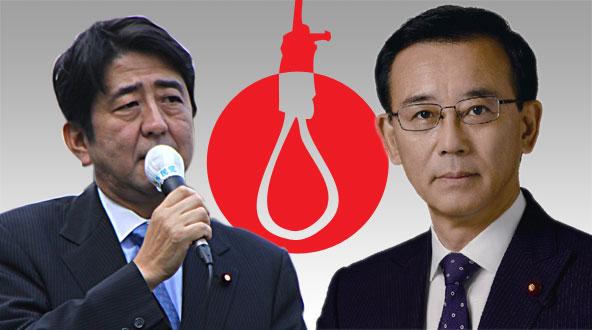
Article(s)
Latest Japan execution violates UN guidelines
on 16 September 2013
World Coalition member organisation Center for Prisoners’ Rights condemns the execution of an elderly prisoner in Tokyo on 12 September.
2013
Japan
Document(s)
Report of the Secretary General: Question of the death penalty 2024
By Office of the High Commissioner for Human Rights (OHCHR), on 16 July 2024
2024
United Nations report
Clemency
Death Row Conditions
Fair Trial
Trend Towards Abolition
aresfrruzh-hantMore details Download [ pdf - 424 Ko ]
Pursuant to Human Rights Council decision 18/117, the present report is submitted to update previous reports on the question of the death penalty. In the report, the SecretaryGeneral reaffirms the general trend towards universal abolition of the death penalty and highlights initiatives limiting its use and implementing safeguards guaranteeing the protection of the rights of those facing this penalty. Between July 2022 and June 2024, a minority of States continued to implement the death penalty, with some increasing their use considerably. Pursuant to Council resolution 22/11, the report includes information on the human rights of children of parents sentenced to the death penalty or executed.
- Document type United Nations report
- Themes list Clemency / Death Row Conditions / Fair Trial / Trend Towards Abolition
- Available languages مادعلإا ةبوقع ةلأسم - ماعلا نيملأا ريرقتLa cuestión de la pena de muerte Informe del Secretario GeneralQuestion de la peine de mort - Rapport du Secrétaire généralВопрос о смертной казни - Доклад Генерального секретаря死刑问题 秘书长的报告

Member(s)
Observatoire Marocain des Prisons
on 30 April 2020
L’Observatoire marocain des prisons (OMP) is an independent non-governmental organisation created by human rights activists to protect and promote the rights of prisoners. It monitors prison conditions in Morocco, provides legal assistance to prisoners and runs a research, information and advocacy centre for more humane prisons. The OMP considers that the dignity and physical and […]
2020
Morocco
Article(s)
Hands Off Cain holds moratorium conference in Gabon
on 11 December 2007
The Italian-based abolitionist group organised the event in Libreville on December 10, Human Rights Day 2007, with the government of Gabon and financial backing from the Dutch government.
2007
Burundi
Democratic Republic of the Congo
Gabon
Gabon
Mali
Moratorium
Document(s)
Wrongful Convictions and the Death Penalty Guide
By The Death Penalty Project, on 1 November 2022
2022
NGO report
Fair Trial
More details See the document
One of the most compelling forces behind the evolution of international attitudes towards capital punishment in recent decades has been the increasing recognition of the potential for error in its use – that those states that choose to retain the practice may be taking the lives of innocent individuals. The Death Penalty Project produced this resource on wrongful convictions and the death penalty.
- Document type NGO report
- Themes list Fair Trial
Document(s)
Poster World Day 2006
on 10 October 2006
2006
Campaigning
Trend Towards Abolition
frMore details Download [ pdf - 191 Ko ]
Discrimination, unfair trials, judicial error, the execution of child
offenders and those suffering from mental disabilities all
amount to a failure of justice and provide more compelling rea-
sons to abolish the death penalty. 10 October 2006 is the fourth
World Day Against the Death Penalty. Join the World Coalition
Against the Death Penalty in working for an end to the use of
capital punishment and a globe free of judicial killing.
- Document type Campaigning
- Themes list Trend Towards Abolition
- Available languages Affiche journée mondiale 2006
Article(s)
“Young people over 13 will understand”
on 28 February 2010
Wen-Yu Weng (19), a student and debating coach from Thailand who attended the World Congress workshop on educational strategies, thinks young teenagers are mature enough to understand the death penalty debate – just like she did.
2010
Thailand

Article(s)
Highest execution numbers in Iran in 10 years
By Mahmood Amiry-Moghaddam, on 13 March 2012
Iran Human Rights has published its annual report on the death penalty in Iran in 2011. IHR’s international spokesperson Mahmood Amiry-Moghaddam says the Iranian authorities are keeping the number of executions high because they use the death penalty as a political tool.
2012
Drug Offenses
Iran (Islamic Republic of)
Juveniles
Women
Document(s)
Lethal Election: How the U.S. Electoral Process Increases the Arbitrariness of the Death Penalty
By Death Penalty Information Center, on 1 July 2024
2024
NGO report
Public Opinion
United States
More details See the document
Key Findings
Elected supreme court justices in Georgia, North Carolina, and Ohio are twice as likely to affirm death penalty cases during an election year than in any other year. This effect is statistically significant when controlling for the number of cases each year.
Changing public opinion means that zealous support for the death penalty is no longer a litmus test for elected officials in many death penalty jurisdictions. Today’s elections feature viable candidates who criticize use of the death penalty and pledge reforms or even non-use, reflecting the significant decline in public support for the death penalty.
Elected governors were more likely to grant clemency in the past when they did not face voters in an upcoming election. Concerns about voter “backlash” have eased today with declining public support and low numbers of new death sentences and executions, and have led to an increased number of prisoners benefiting from clemency grants, especially mass grants, in recent years.
- Document type NGO report
- Countries list United States
- Themes list Public Opinion
Document(s)
STRENGTHENING THE DEFENCE IN DEATH PENALTY CASES IN THE PEOPLE´S REPUBLIC OF CHINA: Empirical Research into the Role of Defence Councils in Criminal Cases Eligible for the Death Penalty
By Hans Jörg Albrecht / Max Planck Institute for Foreign and International Criminal Law, on 1 January 2006
2006
Article
China
More details See the document
This project examines the role of defence councils in Chinese criminal proceedings that can end up with the imposition of the death penalty. It aims to review the problems defence lawyers face in such proceedings, the defence strategies they apply and to examine whether the assignment of a defence lawyer makes a difference in the outcome of a criminal trial. Moreover, the project explores what can and should be done to empower defence councils to effectively represent suspects and accused in death penalty eligible cases.The objective of the study is to shed light on the problems experienced by criminal defence councils when defending capital crime cases and to generate information on how death penalty cases are processed through the Chinese system of justice as well as the determinants of the outcomes death penalty eligible criminal cases.
- Document type Article
- Countries list China
- Themes list Legal Representation,
Article(s)
Pardons and commutations in Nigeria
on 29 August 2009
Shortly after Kenya commuted thousands of death sentences, the Nigerian state of Lagos took similar steps and moved closer to abolition.
2009
Clemency
Nigeria
Nigeria
Document(s)
The Arts and Human Rights: Introducing the “Sweet Destiny” Album and Film
on 25 August 2021
2021
Multimedia content
Iran (Islamic Republic of)
More details See the document
Iran Human Rights (IHR); August 25, 2021: Pioneering Iranian alternative rock band, Kiosk have released a new musical film and album titled “Sweet Destiny.” Based on a historic 1853 photograph of a public execution by cannon fire in Iran, it is the first professional Farsi language album or film of its kind to be dedicated to the subject of the death penalty.
The story is narrated by the photographer who has been summoned to photograph the scene of the execution as proof and questions the defendant’s crime. Divided into 14 acts, the imagined story of the execution is layered with cultural and political metaphors and references. Kiosk’s rich and poignant songs create context, take the viewers through the history of Iran since 1853 and highlight the critical issues around the death penalty and human rights breaches in Iran. Using historical photographs, paintings and animation, Sweet Destiny is visually mesmerising and thought provoking with sprinkles of satire that masterfully cross cultural boundaries. The film is subtitled in English.
- Document type Multimedia content
- Countries list Iran (Islamic Republic of)
Document(s)
Poster World Day 2005
By World Coalition against the death penalty , on 10 October 2005
2005
Campaigning
Trend Towards Abolition
frMore details Download [ pdf - 46 Ko ]
To date, 12 African countries have abolished the death penalty for all crimes;
20 retain the death penalty but are no longer carrying out executions; and 21 retain and use
the death penalty. The World Coalition against the death penalty has decided to devote the
World Day 2005 to a campaign to encourage all African countries to abolish capital
punishment permanently.
- Document type Campaigning
- Themes list Trend Towards Abolition
- Available languages Affiche journée mondiale 2005

Member(s)
KontraS (Commission for the Disapeared and Victims of Violence)
on 30 April 2020
KontraS (Commission for the Disappeared and Victims of Violence) in Indonesia is a human rights NGO that deals with human rights issues in Indonesia, particularly civil and political rights. Abolition of the death penalty is one of its advocacy objectives. KontraS is a member of regional and national networks: Anti Death Penalty Asian Network (ADPAN) […]
2020
Indonesia

Member(s)
Belarusian Helsinki Committee
on 30 April 2020
Founded in 1995, the National Human Rights Public Association “Belarusian Helsinki Committee” is one of the oldest human rights defenders organizations in Belarus. The list of its founders includes the nation’s most prominent leaders such as Vasil’ Bykau, Sviatlana Alexievich (Nobel prize in literature 2015). BHC sees as its main objective creating of civic context, […]
Belarus
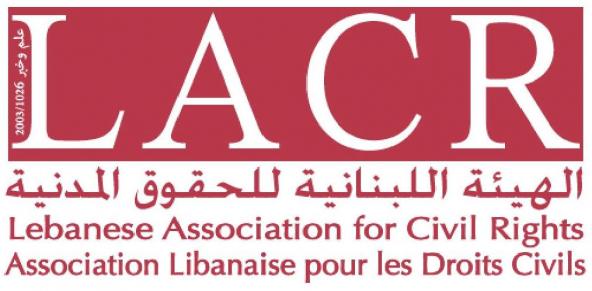
Member(s)
Lebanese Association for Civil Rights (LACR)
on 30 April 2020
The Lebanese Association for Civil Rights – LACR was founded in 2003 as a continuation of an action experienced since 1983 by two pioneers of the culture of non-violence in Lebanon and the Arab world: Walid Slaybi and Ogarit Younan. They are both writers, researchers, sociologists, pioneers of active training in Lebanon and grassroots activists. […]
Lebanon
Document(s)
The Mandatory Death Penalty in the Commonwealth Caribbean and the Inter-American Human Rights System: An Evolution in the Development and Implementation of International Human Rights Protections
By Brian D. Tittemore / William and Mary Bill of Rights 13 (2), 445, on 1 January 2004
2004
Article
More details See the document
Among the most significant and compelling aspects of the litigation surrounding the issue of the mandatory death penalty in the Caribbean region has been the interplay between the procedures and jurisprudence of the inter-American human rights system and those of relevant domestic courts. In particular, the supervisory bodies of the inter-American system have relied upon the decisions of appellate courts in certain states employing the death penalty, and have concluded that the practice of mandatory sentencing for the death penalty contravened applicable international human rights norms. Subsequently, appellate courts in the Caribbean region explicitly relied upon the jurisprudence of the Inter-American Commission on Human Rights and the Inter-American Court of Human Rights in interpreting and applying rights that are protected under national constitutions. Moreover, the Judicial Committee of the Privy Council found that the protection of due process of law under national constitutions extend to the procedures before the inter-American human rights system,’ with the consequence that states were barred from executing capital defendants while their pending cases were before the Inter-American Commission on Human Rights and, where available, the Inter-American Court of Human Rights.
- Document type Article
- Themes list Mandatory Death Penalty,
Document(s)
New Research Finds That Historical News Coverage Reduced Executed Black Men to “Faceless, Interchangeable Public Safety Hazards” While Executed White Men Were Portrayed As “Tragic Heroes”
By The Death Penalty Information Center (DPIC), on 24 January 2024
2024
Article
Public Opinion
United States
More details See the document
Published on December 12, 2023.
In a recently published academic article, Emory University History Professor Daniel LaChance writes about an important and underrecognized distinction in the way newspaper editors and journalists covered the executions of Black and white men in the late 19th and early 20th centuries. Professor LaChance argues that the portrayals of the defendants made legal executions “a high-status punishment that respected the whiteness of those who suffered it.” While the length and detail of articles about the executions of Black men shrank dramatically over time, he notes that journalists consistently highlighted the humanity of white men who were executed, making it “easier for those who wanted to project a modern image of the South to distance capital punishment from lynching, a form of violence that was becoming a source of embarrassment for respectable white Southerners.”
- Document type Article
- Countries list United States
- Themes list Public Opinion

Article(s)
Watch Belarus Free Theatre Live Stream!
By World Coalition Against the Death Penalty, on 6 November 2015
Sunday 8 November: live stream starts at 19:00 London time. Belarus Free Theatre serve up food, music, dance and Shakespeare as they share true stories from inmates, executioners, human rights lawyers and families of the executed.
2015
Belarus
Belarus
Document(s)
Annual Report on the Death Penalty in Iran 2022
By Iran Human Rights & ECPM, on 13 April 2023
2023
NGO report
Iran (Islamic Republic of)
frMore details See the document
The 15th Annual Report on the Death Penalty in Iran, by Iran Human Rights and ECPM reveals the highest annual number of executions since 2015. At least 582 people were executed, an increase of 75% compared to 2021. In 2022, Iran’s authorities demonstrated how crucial the death penalty is to instil societal fear in order to hold onto power.
- Document type NGO report
- Countries list Iran (Islamic Republic of)
- Available languages Rapport annuel sur la peine de mort en Iran 2022
Article(s)
Human Rights and the Death Penalty in Iran
on 19 June 2007
A gathering has taken place in Geneva on June 11, 2007 to protest against human rights violations in Iran. On the initiative of Human Rights in Iran, this demonstration was supported by Hands Off Caïn, the International Committee against Torture, Rights & Democracy, and the Canadian Center for the Victims of Torture (CCVT), among others.
2007
Cruel, Inhuman and Degrading Treatment and Punishment
Iran (Islamic Republic of)
Juveniles
Women

Member(s)
Mauritanian Coalition Against Death Penalty
on 30 April 2020
The main goals of the Mauritanian Coalition are the fight against death penalty, the defense of the universal human rights ideas, the struggle for equality between people, the promotion of peace in the world, and the cooperation between people. To achieve its goals, the Mauritanian Coalition’s main actions are conferences and workshops, and seminars for […]
2020
Mauritania

Member(s)
The Human Rights Centre “Viasna”
on 30 April 2020
The Human Rights Centre “Viasna” is a non-governmental human rights organization active since 1996. It is a nation-wide NGO with a central office in Minsk and a dozen local offices across the country. Viasna has about 200 members. In 2003, the Supreme Court groundlessly cancelled the registration of Viasna for its participation in the observation […]
Belarus
Document(s)
Protecting the right to life against the Death Penalty. Written observations to the Inter-American Court of Human Rights on Legislative or Other Measures Denying Judicial or Other Effective Recourses to Challenge the Death Penalty.
By Amnesty International, on 1 January 2004
2004
NGO report
esMore details See the document
This document contains Amnesty International’s written observations to the Inter-American Court of Human Rights on legislative or other measures denying judicial or other effective recourse to challenge the death penalty; in the matter of a request by the Inter-American Commission on Human Rights for an advisory opinion from the Inter-American Court of Human Rights (article 64(1) of the American Convention on Human Rights) and in the matter of legislative measures concerning the mandatory imposition of the death penalty and related matters.
- Document type NGO report
- Themes list Right to life, Mandatory Death Penalty,
- Available languages Proteger el derecho a la vida frente a la pena de muerte. Observaciones escritas a la Corte Interamericana de Derechos Humanos respecto de las medidas legislativas o de otra índole que niegan un recurso judicial u otro recurso efectivo para impugnar la pena de muerte
Member(s)
Comisión Cubana de Derechos Humanos y Reconciliación Nacional
on 30 April 2020
Mandate and Objectives: Promotion and protection of all HR for all. Programme for the abolition of the death penalty. Training programs. Free legal aid services. Preparation of monthly and special reports. Request for precautionary measures to international organizations. Type of actions: Legal defense. Education and outreach in the field of Hman Rights and Humanitarian aid […]
2020
Cuba
Page(s)
Life of the Network
on 22 June 2020
Abolitionists around the world are mobilizing to end the death penalty. World Day, World Congress, important events for the life of the World Coalition such as the steering committees, but also meetings, events and actions carried out by our members around the world: do not miss any event related to the fight against the death […]
2020
Document(s)
On the possibility of Viet Nam ratifying the Second Optional Protocol to the ICCPR aiming at the Abolition of the Death Penalty
By European Union / United Nations Development Programme / Nguyen Thi Thanh Hai / Nguyen Van Hoan / Nguyen Minh Khue, on 1 January 2019
2019
International law - United Nations
enMore details See the document
This study aims to assess the possibility of Viet Nam ratifying the Second Optional Protocol to the International Covenant on Civil and Political Rights (ICCPR) aiming at the abolition of the death penalty. It analyzes: (a) the current international legal framework and the process of legal development to abolish the death penalty in selected countries, (b) the compatibility between the existing regulations on the death penalty in the Vietnamese legal system and the Second Optional Protocol of the ICCPR, and (c) the assessment of feasibility for abolition of the death penalty in Viet Nam.
- Document type International law - United Nations
- Themes list International law, Country/Regional profiles,
- Available languages Viêt Namese : Khả năng của Việt Nam gia nhập Nghị định thư tùy chọn thứ hai về bãi bỏ hình phạt tử hình theo Công ước quốc tế về các quyền dân sự và chính trị (ICCPR)

Member(s)
Prison Insider
on 30 April 2020
Prison Insider is a French independent NGO. Prison Insider’s main mission is to raise awareness about the conditions of detention and to promote the rights and dignity of people deprived of liberty, everywhere in the world. To reach its aims, the organisation primarily operates an information website. Prison Insider’s vocation is to make available and […]
2020
France
Document(s)
Fourteen Days in May
By Paul Hamann, on 30 November 2018
2018
Arguments against the death penalty
Multimedia content
Death Row Conditions
More details See the document
Fourteen Days in May is a documentary directed by Paul Hamann. The program recounts the final days before the execution of Edward Earl Johnson, an American prisoner convicted of rape and murder.
The documentary crew, given access to the prison warden, guards and chaplain and to Johnson and his family, filmed the last days of Johnson’s life in detail. The documentary argues against the death penalty and maintains that capital punishment is disproportionately applied to African-Americans convicted of crimes against whites. The programme features attorney Clive Stafford Smith, an advocate against capital punishment.
- Document type Arguments against the death penalty / Multimedia content
- Themes list Death Row Conditions
Article(s)
Mobilisation for Mumia Abu Jamal
on 19 June 2007
Last May 17, the Philadelphia Federal Court of Appeal held a hearing that could seal the fate of Mumia Abu Jamal. On the occasion of this new hearing, the Collectif unitaire de soutien à Mumia Abu Jamal, and all his supporters, organized public mobilization and information initiatives on all continents.
2007
Fair Trial
United States
Document(s)
The Fear of Too Much Justice : Race, Poverty, and the Persistence of Inequality in the Criminal Courts
By Stephen B. Bright, James Kwak , on 21 April 2023
2023
Book
Fair Trial
United States
More details See the document
In The Fear of Too Much Justice, legendary death penalty lawyer Stephen B. Bright and legal scholar James Kwak offer a heart-wrenching overview of how the criminal legal system fails to live up to the values of equality and justice. The book ranges from poor people squeezed for cash by private probation companies because of trivial violations to people executed in violation of the Constitution despite overwhelming evidence of intellectual disability or mental illness. They also show examples from around the country of places that are making progress toward justice.
With a foreword by Bryan Stevenson, who worked for Bright at the Southern Center for Human Rights and credits him for “[breaking] down the issues with the death penalty simply but persuasively,” The Fear of Too Much Justice offers a timely, trenchant, firsthand critique of our criminal courts and points the way toward a more just future.
Available: June 2023
- Document type Book
- Countries list United States
- Themes list Fair Trial
Article(s)
8 Demands for Beijing
on 21 June 2007
By welcoming the Olympics in 2008, China committed itself to improving its human rights situation. Anxious to remind Chinese authorities of their commitments, nine French associations, five of which are members of the World Coalition, created the China 2008 Olympic Games Collective.
2007
China
Document(s)
Living with a Death Sentence in Kenya: Prisoners’ Experiences of Crime, Punishment and Death Row
By Carolyn Hoyle and Lucrezia Rizzelli, on 24 January 2023
2023
Book
Kenya
More details See the document
The Death Penalty Project’s latest report provides a comprehensive analysis of the lives of prisoners on death row in Kenya. It focuses on prisoners’ socio-economic backgrounds and profiles, their pathways to, and motivation for, offending, as well as their experiences of the criminal justice process and of imprisonment. It complements our previous research, a two-part study of attitudes towards the death penalty in Kenya, The Death Penalty in Kenya: A Punishment that has Died Out in Practice.
While 120 countries around the world have now abolished the death penalty, including 25 in Africa, Kenya is one of 22 African nations that continues to retain the death penalty in law, albeit it has not carried out any executions for more than three decades. As such, Kenya is classified as ‘abolitionist de facto’, the United Nations term for a country that has not carried out an execution for at least 10 years. Yet, while state-sanctioned executions no longer occur, hundreds of people are currently living under sentence of death and others are convicted and sentenced to death each year. As long as the death penalty is retained in law, there remains a risk that executions might resume if there is political change. Moreover, the plight and turmoil of those languishing on death row – consistently the poorest and most vulnerable – cannot be ignored. They are disproportionately sentenced to death and suffer the harshest punishments and treatment.
- Document type Book
- Countries list Kenya
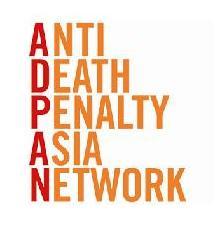
Member(s)
Anti-Death Penalty Asia Network (ADPAN)
on 30 April 2020
The Anti-Death Penalty Asia Network (ADPAN) was founded in Hong Kong on the World Day against the Death Penalty in 2006. In 2014, at its first General Meeting in Taipei, Taiwan, Anti-Death Penalty Asia Network (ADPAN) members approved ADPAN’s Constitution, and ADPAN’s first Executive Committee was elected. ADPAN, an independent Asia-Pacific network committed to working […]
2020
Malaysia
Document(s)
The True Legacy of Atkins and Roper: The Unreliability Principle, Mentally Ill Defendants, and the Death Penalty’s Unraveling
By Scott E. Sundby / University of Miami School of Law, on 8 September 2020
2020
NGO report
United States
More details See the document
In striking down the death penalty for intellectually disabled and juvenile defendants, Atkins v. Virginia and Roper v. Simmons have been understandably heralded as important holdings under the Court’s Eighth Amendment jurisprudence that has found the death penalty “disproportional” for certain types of defendants and crimes. This Article argues, however, that the cases have a far more revolutionary reach than their conventional understanding. In both cases the Court went one step beyond its usual two-step analysis of assessing whether imposing the death penalty violated “evolving standards of decency.” This extra step looked at why even though intellectual disability and youth were powerful mitigators, juries were not able to reliably use them in their decision making. The Court thus articulated expressly for the first time what this Article calls the “unreliability principle:” if too great a risk exists that constitutionally protected mitigation cannot be reliably assessed, the unreliability means that the death penalty cannot be constitutionally imposed. In recognizing the unreliability principle, the Court has called into serious question the death penalty for other offenders to whom the principle applies, such as mentally ill defendants. And, unlike with the “evolving standards” analysis, the unreliability principle does not depend on whether a national consensus exists against the practice. This Article identifies the six Atkins-Roper factors that bring the unreliability principle into play and shows why they make application of the death penalty to mentally ill defendants unconstitutional. The principle, which finds its constitutional home in the cases of Woodson v. North Carolina and Lockett v. Ohio, has profound implications for the death penalty, and if taken to its logical endpoint calls into question the Court’s core premise since Furman v. Georgia, that by providing individualized consideration of a defendant and his crime, the death penalty decision will be free of arbitrariness.
- Document type NGO report
- Countries list United States
- Themes list Fair Trial, Intellectual Disability,
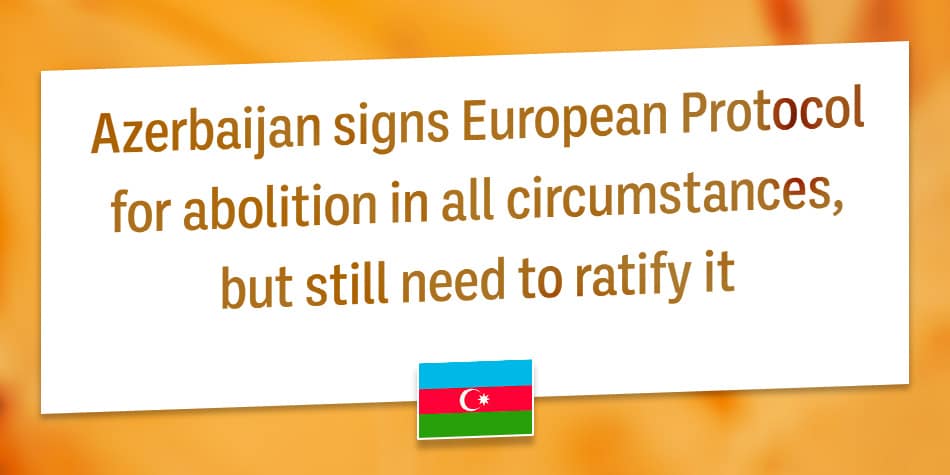
Article(s)
Azerbaijan signs European Protocol for abolition in all circumstances, but still need to ratify it
By Aurélie Plaçais, on 28 March 2023
On 8 March 2023, Azerbaijan signed Protocol No. 13 to the Convention for the Protection of Human Rights and Fundamental Freedoms.
2023
Azerbaijan
Trend Towards Abolition

Article(s)
European Protocol for full abolition turns 20
By World Coalition Against the Death Penalty, on 3 May 2022
Today is the 20th anniversary of the adoption of Protocol No. 13 to the Convention for the Protection of Human Rights and Fundamental Freedoms, concerning the abolition of the death penalty in all circumstances.
2022
Armenia
Azerbaijan

Article(s)
Loopholes in Saudi promise to end death sentences against children
on 6 May 2020
Saudi Arabia’s Human Rights Commission has announced that children are no longer eligible for the death penalty in the Kingdom. Citing a royal decree, the commission stated that anyone convicted of crimes that took place while they were under the age of 18 will face a maximum punishment of ten years in juvenile detention.
2020
Juveniles
Saudi Arabia
Document(s)
The Death Penalty in the Socialist Republic of Vietnam – Special edition for the 4th World Congress Against the Death Penalty
By Vietnam Committee on Human Rights / International Federation for Human Rights (FIDH), on 8 September 2020
2020
NGO report
Viet Nam
More details See the document
The use of the death penalty is frequent in the Socialist Republic of Vietnam (SRV). Capital punishment is applied for 22 offences, including murder, armed robbery, drug trafficking, rape, sexual abuse of children, and a range of economic crimes, such as graft and corruption, fraud and embezzlement (for 500 million dong – $33,200 – or more of state property), illegal production and trade of food, foodstuffs and medicines. Seven political acts perceived as “threats against national security” carry the death penalty as a maximum sentence. Capital punishment is most often used to sanction drug-related offences, followed by corruption, black-market and violent crimes. Vietnam has some of the harshest drug laws in the world. A 1997 law made possession or smuggling of 100g or more of heroin, or 5 kilograms or more of opium, punishable by death. In 2001, 55 sentences were pronounced for drug trafficking alone.
- Document type NGO report
- Countries list Viet Nam
- Themes list Firing Squad, Country/Regional profiles,
Document(s)
Justice by Geography and Race: The Administration of the Death Penalty in Maryland 1978-1999
By Robert Brame / Raymond Paternoster / Margins Law Journal / Sarah Bacon / Andrew Ditchfield, on 1 January 2004
2004
Article
United States
More details See the document
Since July 1978, when Maryland’s capital punishment statute took effect, the State has been plagued by charges that the imposition of the death penalty is influenced by the race of the defendant and the legal jurisdiction in which the homicide occurred. Most critics use the characteristics of condemned inmates on Maryland’s death row, which reveal possible racial motivations. However, the authors argue that simply relying on the characteristics of condemned inmates reveals little about the underlying mechanisms of the imposition of the death penalty. The recent history of capital punishment in Maryland is reviewed, followed by a brief description of the legal structure of capital punishment under Maryland law. In order to empirically measure whether the imposition of capital punishment in Maryland is discriminatory, the authors examined 1,311 death eligible cases in Maryland from July 1, 1978 to December 31, 1999. Death eligible cases were defined as those cases in which the State’s attorney filed a notice of intention to seek a death sentence, the facts established that first degree murder was committed, the defendant was the principle in the first degree murder, the murder included at least one statutory aggravating circumstance, and the defendant was eligible for capital punishment at the time of the offense. The statistical strategy focused on determining the influence of race of victim, race of defendant, and geography on the imposition of the death penalty. Findings suggest that race and geography indeed play an important role in the Maryland justice system. Race and geography exert their most influence at the death notification and death notice retraction stages of the process. Thus, it is prosecutorial discretion that is the most apparent in the possible discriminatory application of capital punishment in Maryland. The findings from this study are unsurprising and are in line with similar studies from other States. The author cautions that overt racism is not necessarily the reason beyond the disproportionate application of capital punishment.
- Document type Article
- Countries list United States
- Themes list Networks,
Article(s)
Human Rights Advocacy Officer
By Harm Reduction International, on 17 August 2017
Harm Reduction International is currently seeking to recruit Human Rights Advocacy Officer. Working as a member of the Campaigns and Advocacy Team.
2017
Document(s)
EVALUATING FAIRNESS AND ACCURACY IN STATE DEATH PENALTY SYSTEMS: The Ohio Death Penalty Assessment Report: An Analysis of Ohio’s Death Penalty Laws, Procedures, and Practices
By American Bar Association, on 1 January 2007
2007
NGO report
More details See the document
To assess fairness and accuracy in Ohio’s death penalty system, the Ohio Death Penalty Assessment Team researched the twelve issues that the American Bar Association identified as central to the analysis of the fairness and accuracy of a state’s capital punishment system: (1) collection, preservation, and testing of DNA and other types of evidence; (2) law enforcement identifications and interrogations; (3) crime laboratories and medical examiner offices; (4) prosecutorial professionalism; (5) defense services; (6) the direct appeal process; (7) state post-conviction proceedings; (8) clemency; (9) jury instructions; (10) judicial independence; (11) racial and ethnic minorities; and (12) mental retardation and mental illness. The Ohio Death Penalty Assessment Report devotes a chapter to each of these issues, which follow a preliminary chapter on Ohio death penalty law (for a total of 13 chapters). Each of the issue chapters begins with a discussion of the relevant law and then reaches conclusions about the extent to which the State of Ohio complies with the ABA Recommendations.
- Document type NGO report
- Themes list Due Process ,
Document(s)
EVALUATING FAIRNESS AND ACCURACY IN STATE DEATH PENALTY SYSTEMS: The Indiana Death Penalty Assessment Report: An Analysis of Indiana’s Death Penalty Laws, Procedures, and Practices
By American Bar Association, on 1 January 2007
NGO report
More details See the document
To assess fairness and accuracy in Indiana’s death penalty system, the Indiana Death Penalty Assessment Team researched the twelve issues that the American Bar Association identified as central to the analysis of the fairness and accuracy of a state’s capital punishment system: (1) collection, preservation, and testing of DNA and other types of evidence; (2) law enforcement identifications and interrogations; (3) crime laboratories and medical examiner offices; (4) prosecutorial professionalism; (5) defense services; (6) the direct appeal process; (7) state post-conviction proceedings; (8) clemency; (9) jury instructions; (10) judicial independence; (11) racial and ethnic minorities; and (12) mental retardation and mental illness. The Indiana Death Penalty Assessment Report devotes a chapter to each of these issues, which follow a preliminary chapter on Indiana death penalty law (for a total of 13 chapters). Each of the issue chapters begins with a discussion of the relevant law and then reaches conclusions about the extent to which the State of Indiana complies with the ABA Recommendations.
- Document type NGO report
Document(s)
EVALUATING FAIRNESS AND ACCURACY IN STATE DEATH PENALTY SYSTEMS: The Florida Death Penalty Assessment Report: An Analysis of Florida’s Death Penalty Laws, Procedures, and Practices
By American Bar Association, on 1 January 2006
2006
NGO report
More details See the document
To assess fairness and accuracy in Florida’s death penalty system, the Florida Death Penalty Assessment Team researched the twelve issues that the American Bar Association identified as central to the analysis of the fairness and accuracy of a state’s capital punishment system: (1) collection, preservation, and testing of DNA and other types of evidence; (2) law enforcement identifications and interrogations; (3) crime laboratories and medical examiner offices; (4) prosecutorial professionalism; (5) defense services; (6) the direct appeal process; (7) state post-conviction proceedings; (8) clemency; (9) jury instructions; (10) judicial independence; (11) racial and ethnic minorities; and (12) mental retardation and mental illness. The Florida Death Penalty Assessment Report devotes a chapter to each of these issues, which follow a preliminary chapter on Florida death penalty law (for a total of 13 chapters). Each of the issue chapters begins with a discussion of the relevant law and then reaches conclusions about the extent to which the State of Florida complies with the ABA Recommendations.
- Document type NGO report
Document(s)
Investigating Attitudes to the Death Penalty in Indonesia, Part Two – Public Opinion: No Barrier to Abolition
By Carolyn Hoyle - The Death Penalty Project, in partnership with LBH Masyarakat and the University of Indonesia, on 28 June 2021
2021
NGO report
Drug Offenses
Indonesia
Public Opinion
More details See the document
In 2019-20, The Death Penalty Project, in partnership with LBH Masyarakat and the University of Indonesia, commissioned Professor Carolyn Hoyle, of The Death Penalty Research Unit at the University of Oxford to conduct research investigating attitudes towards the death penalty in Indonesia. The findings have been presented in a two-part report; the first details the findings of a nuanced public survey and the second details the findings of interviews conducted with opinion formers. The public opinion research was undertaken by surveying a stratified random sample of 1,515 respondents – a sample large enough to make inferences from the data about the views of the overall population.
- Document type NGO report
- Countries list Indonesia
- Themes list Drug Offenses / Public Opinion
Document(s)
Sri Lankan expert needed to conduct study on the death penalty – Terms of reference
By World Coalition Against the Death Penalty, on 23 December 2021
2021
World Coalition
More details Download [ pdf - 83 Ko ]
- Document type World Coalition
Member(s)
Bayt Al Hikma
on 30 April 2020
Bayt Al Hikma is a non-governmental organization founded in 2007 whose main objective is to promote the values of human rights and individual freedoms. Our activities revolve around two themes 1. Values and individual freedoms 2. The promotion and protection of children. Our action plan is as follows: • Annual Report: Prepare an annual report […]
2020
Morocco
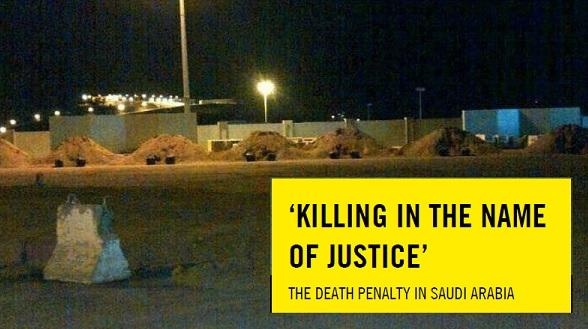
Article(s)
Saudi Arabia: “Killing in the Name of Justice”
By Elisa Belotti, on 7 October 2015
When it comes to the execution of death penalties, Saudi Arabia is one of the most prolific country in the world. This is what emerges from a new report published by Amnesty International in August 2015.
2015
Saudi Arabia

Member(s)
Association Marocaine des Droits Humains (AMDH)
on 30 April 2020
Association marocaine des droits humains (AMDH) works towards safeguarding human dignity and for the respect, defence and promotion of human rights. Convinced of the universal nature of these rights, the AMDH bases its action on the international agreements which defend them. It campaigns for them to be respected in the political, civil, economic, social and […]
2020
Morocco
Article(s)
Human Rights Advocacy Officer – Harm Reduction International
By Harm Reduction International, on 23 January 2018
Harm Reduction International is currently seeking to recruit a Human Rights Advocacy Officer, working as a member of their Campaigns and Advocacy Team.
2018
United Kingdom

Member(s)
International Federation for Human Rights (FIDH)
on 30 April 2020
The International Federation for Human Rights (FIDH)’s mandate is to act effectively to ensure all the rights laid down in the Universal Declaration of Human Rights are respected. These include civil and political rights, as well as economic, social and cultural ones. The FIDH is a federation of 141 leagues in 100 countries. It coordinates […]
2020
France
Document(s)
EVALUATING FAIRNESS AND ACCURACY IN STATE DEATH PENALTY SYSTEMS: The Pennsylvania Death Penalty Assessment Report: An Analysis of Pennsylvania’s Death Penalty Laws, Procedures, and Practices
By American Bar Association, on 1 January 2007
2007
NGO report
More details See the document
To assess fairness and accuracy in Pennsylvania’s death penalty system, the Pennsylvania Death Penalty Assessment Team researched the twelve issues that the American Bar Association identified as central to the analysis of the fairness and accuracy of a state’scapital punishment system: (1) collection, preservation, and testing of DNA and other types of evidence; (2) law enforcement identifications and interrogations; (3) crime laboratories and medical examiner offices; (4) prosecutorial professionalism; (5) defense services; (6) the direct appeal process; (7) state post-conviction proceedings; (8) clemency; (9) jury instructions; (10) judicial independence; (11) racial and ethnic minorities; and (12) mental retardation and mental illness. Following a preliminary chapter on Pennsylvania’s death penalty law, the Pennsylvania Death Penalty Assessment Report devotes a chapter to each of these issues. Each chapter begins with a discussion of the relevant law and concludes with a discussion of the extent to which the Commonwealth of Pennsylvania is in compliance with the ABA’s Recommendations.
- Document type NGO report
- Themes list Due Process ,
Document(s)
EVALUATING FAIRNESS AND ACCURACY IN STATE DEATH PENALTY SYSTEMS: The Tennessee Death Penalty Assessment Report: An Analysis of Tennessee’s Death Penalty Laws, Procedures, and Practices
By American Bar Association, on 1 January 2007
NGO report
More details See the document
To assess fairness and accuracy in Tennessee’s death penalty system, the Tennessee Death Penalty Assessment Team researched the twelve issues that the American Bar Association identified as central to the analysis of the fairness and accuracy of a state’s capital punishment system: (1) collection, preservation, and testing of DNA and other types of evidence; (2) law enforcement identifications and interrogations; (3) crime laboratories and medical examiner offices; (4) prosecutorial professionalism; (5) defense services; (6) the direct appeal process; (7) state post-conviction proceedings; (8) clemency proceedings; (9) jury instructions; (10) judicial independence; (11) racial and ethnic minorities; and (12) mental retardation and mental illness. Following a preliminary chapter on Tennessee’s death penalty law, the Tennessee Death Penalty Assessment Report devotes a chapter to each of these twelve issues. Each chapter begins with a discussion of the relevant law and then concludes the extent to which the State of Tennessee is in compliance with the ABA’s Recommendations.
- Document type NGO report
- Themes list Due Process ,
Article(s)
Religion in favour of abolition
on 28 February 2010
Skull-cap, scarf and priest’s white collar gathered at a round table to discuss the issue of religion in terms of the death penalty.
2010
Thailand
Article(s)
Fair and open investigation in Uyghur region
on 21 July 2009
Following the death penalty threats issued against protestors in Xinjiang, the World Coalition calls on China to respect its international committments and to guarantee fair trials.
2009
China
Fair Trial
Article(s)
Nie Shubin: a victim of the arbitrary in China
on 21 January 2008
In the lead up to the Beijing Olympics, the French coalition Collectif Chine JO 2008 highlights cases of human rights abuse in China on a weekly basis. This week, they focus on Nie Shubin, who was executed by mistake in 1995.
2008
China
Cruel, Inhuman and Degrading Treatment and Punishment
Women
Document(s)
Keep the Death Penalty Abolished in the Philippines (Tausug)
By World Coalition Against Death Penalty, on 23 March 2021
2021
Campaigning
Drug Offenses
Philippines
More details Download [ pdf - 2595 Ko ]
This brochure was developed by the World Coalition Against the Death Penalty with the Commission on the Human Rights in the Philippines. It explains why the death penalty risks returning in the Philippines and the reasons against its resurgence. It is available in 11 languages of the Philippines, plus French and English.
- Document type Campaigning
- Countries list Philippines
- Themes list Drug Offenses
Document(s)
Keep the Death Penalty Abolished in the Philippines (Waray)
By World Coalition Against Death Penalty, on 23 March 2021
Campaigning
Drug Offenses
Philippines
More details Download [ pdf - 1057 Ko ]
This brochure was developed by the World Coalition Against the Death Penalty with the Commission on the Human Rights in the Philippines. It explains why the death penalty risks returning in the Philippines and the reasons against its resurgence. It is available in 11 languages of the Philippines, plus French and English.
- Document type Campaigning
- Countries list Philippines
- Themes list Drug Offenses
Document(s)
Keep the Death Penalty Abolished in the Philippines (Marano)
By World Coalition Against Death Penalty, on 23 March 2021
Campaigning
Drug Offenses
Philippines
More details Download [ pdf - 1410 Ko ]
This brochure was developed by the World Coalition Against the Death Penalty with the Commission on the Human Rights in the Philippines. It explains why the death penalty risks returning in the Philippines and the reasons against its resurgence. It is available in 11 languages of the Philippines, plus French and English.
- Document type Campaigning
- Countries list Philippines
- Themes list Drug Offenses
Document(s)
Keep the Death Penalty Abolished in the Philippines (Kapampangan)
By World Coalition Against Death Penalty, on 23 March 2021
Campaigning
Drug Offenses
Philippines
More details Download [ pdf - 731 Ko ]
This brochure was developed by the World Coalition Against the Death Penalty with the Commission on the Human Rights in the Philippines. It explains why the death penalty risks returning in the Philippines and the reasons against its resurgence. It is available in 11 languages of the Philippines, plus French and English.
- Document type Campaigning
- Countries list Philippines
- Themes list Drug Offenses
Document(s)
Keep the Death Penalty Abolished in the Philippines (Bicolano)
By World Coalition Against Death Penalty, on 23 March 2021
Campaigning
Drug Offenses
Philippines
More details Download [ pdf - 2584 Ko ]
This brochure was developed by the World Coalition Against the Death Penalty with the Commission on the Human Rights in the Philippines. It explains why the death penalty risks returning in the Philippines and the reasons against its resurgence. It is available in 11 languages of the Philippines, plus French and English.
- Document type Campaigning
- Countries list Philippines
- Themes list Drug Offenses
Document(s)
Keep the Death Penalty Abolished in the Philippines (Ilokano)
By World Coalition Against Death Penalty, on 23 March 2021
Campaigning
Drug Offenses
Philippines
More details Download [ pdf - 2550 Ko ]
This brochure was developed by the World Coalition Against the Death Penalty with the Commission on the Human Rights in the Philippines. It explains why the death penalty risks returning in the Philippines and the reasons against its resurgence. It is available in 11 languages of the Philippines, plus French and English.
- Document type Campaigning
- Countries list Philippines
- Themes list Drug Offenses
Document(s)
Keep the Death Penalty Abolished in the Philippines (Pangasinense)
By World Coalition Against Death Penalty, on 23 March 2021
Campaigning
Drug Offenses
Philippines
More details Download [ pdf - 1042 Ko ]
This brochure was developed by the World Coalition Against the Death Penalty with the Commission on the Human Rights in the Philippines. It explains why the death penalty risks returning in the Philippines and the reasons against its resurgence. It is available in 11 languages of the Philippines, plus French and English.
- Document type Campaigning
- Countries list Philippines
- Themes list Drug Offenses
Document(s)
Keep the Death Penalty Abolished in the Philippines (Hiligaynon)
By World Coalition Against Death Penalty, on 23 March 2021
Campaigning
Drug Offenses
Philippines
More details Download [ pdf - 2538 Ko ]
This brochure was developed by the World Coalition Against the Death Penalty with the Commission on the Human Rights in the Philippines. It explains why the death penalty risks returning in the Philippines and the reasons against its resurgence. It is available in 11 languages of the Philippines, plus French and English.
- Document type Campaigning
- Countries list Philippines
- Themes list Drug Offenses
Document(s)
Keep the Death Penalty Abolished in the Philippines (English)
By World Coalition Against Death Penalty, on 23 March 2021
Campaigning
Drug Offenses
Philippines
frMore details Download [ pdf - 7827 Ko ]
This brochure was developed by the World Coalition Against the Death Penalty with the Commission on the Human Rights in the Philippines. It explains why the death penalty risks returning in the Philippines and the reasons against its resurgence. It is available in 11 languages of the Philippines, plus French and English.
- Document type Campaigning
- Countries list Philippines
- Themes list Drug Offenses
- Available languages Maintenir l'abolition de la peine de mort aux Philippines (Français)
Document(s)
Keep the Death Penalty Abolished in the Philippines (Cebuano)
By World Coalition Against Death Penalty, on 23 March 2021
Campaigning
Drug Offenses
Philippines
More details Download [ pdf - 2567 Ko ]
This brochure was developed by the World Coalition Against the Death Penalty with the Commission on the Human Rights in the Philippines. It explains why the death penalty risks returning in the Philippines and the reasons against its resurgence. It is available in 11 languages of the Philippines, plus French and English.
- Document type Campaigning
- Countries list Philippines
- Themes list Drug Offenses
Document(s)
Keep the Death Penalty Abolished in the Philippines (Tagalog)
By World Coalition Against Death Penalty, on 23 March 2021
Campaigning
Drug Offenses
Philippines
More details Download [ pdf - 2519 Ko ]
This brochure was developed by the World Coalition Against the Death Penalty with the Commission on the Human Rights in the Philippines. It explains why the death penalty risks returning in the Philippines and the reasons against its resurgence. It is available in 11 languages of the Philippines, plus French and English.
- Document type Campaigning
- Countries list Philippines
- Themes list Drug Offenses
Document(s)
Joint letter with the Inter-American Commission on Human Rights on the occasion of the 30th anniversary of the Protocol to the American Convention on Human Rights to abolish the death penalty
on 1 January 2020
2020
NGO report
Regional body report
esfrMore details Download [ pdf - 105 Ko ]
- Document type NGO report / Regional body report
- Available languages Carta conjunta con la Comisión Interamericana de Derechos Humanos sobre el 30º aniversario del Protocolo a la Convención Americana sobre Derechos Humanos sobre la Abolición de la Pena de MuerteLettre conjointe avec la Commission interaméricaine des droits de l'homme à l'occasion du 30ème anniversaire du Protocole à la Convention américaine relative aux droits de l'homme traitant de l'abolition de la peine de mort
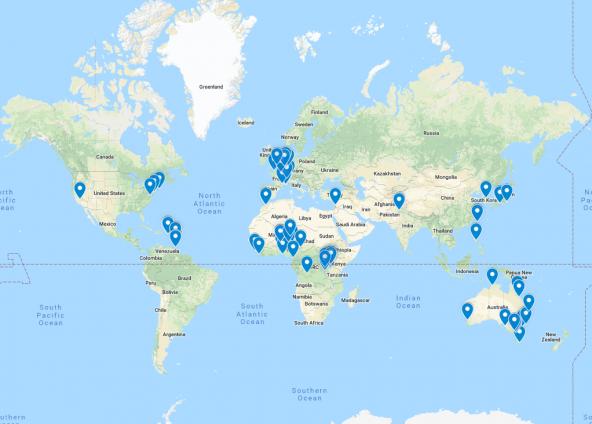
Article(s)
Take Action for World Day 2018!
By World Coalition Against the Death Penalty, on 10 September 2018
Check what you can do for 10 October. Browse the calendar of events and the map to prepare and promote the events planned around the world on the big day.
2018
Death Row Conditions
Document(s)
Texas Death Penalty Developments in 2022: The Year in Review
By Texas Coalition to Abolish the Death Penalty, on 16 December 2022
2022
NGO report
United States
More details See the document
Use of the death penalty in Texas remained near historic low levels in 2022, with juries sentencing two people to death and the State executing five people. Three other scheduled executions were stayed by the Texas Court of Criminal Appeals (CCA). Overall, the eight execution dates set for 2022 were the fewest in Texas since 1996.
Despite their low number, the executions set and carried out in 2022 raise troubling issues about the fairness and utility of the death penalty. Four of the men put to death, including 78-year-old Carl Wayne Buntion, suffered from physical or mental impairments or histories of childhood trauma, while two maintained their innocence of the crimes for which they were convicted.
- Document type NGO report
- Countries list United States
Article(s)
5th World Day against the death penalty: the world decides!
By Thomas Hubert, on 29 June 2007
On October 10th, 2007, the World Day against the Death Penalty focussed on the proposed UN General Assembly resolution for a universal moratorium on executions. The proposal would save lives and give the population of retentionist states an opportunity to see for themselves that a pause in death sentences does not lead to higher crime rates.
2007
Moratorium
Document(s)
Capital punishment and the implementation of the safeguards guaranteeing protection of the rights of those facing the death penalty – Yearly supplement of the Secretary-General to his quinquennial report
By United Nations / Human Rights Council, on 8 September 2020
2020
United Nations report
rufrzh-hantesMore details See the document
The Report examines the possible consequences of the imposition and application of the death penalty on the enjoyment of various human rights, including human dignity, the right to life, the right to freedom from torture or other cruel, inhuman or degrading treatment or punishment, the right to a fair trial and the right to equality and non-discrimination. It further examines the human rights consequences of the lack of transparency in the imposition and application of the death penalty.
- Document type United Nations report
- Themes list Fair Trial, Right to life, Cruel, Inhuman and Degrading Treatment and Punishment,
- Available languages Смертная казнь и осуществление мер, гарантирующих защиту прав лиц, приговоренных к смертной казни. Ежегодное дополнение Генерального секретаря к его пятилетнему докладу по вопросу о смертной казниPeine capitale et application des garanties pour la protection des droits des personnes passibles de la peine de mort. Supplément annuel au rapport quinquennal du Secrétaire général sur la peine capitale死刑和保护死刑犯权利的保障措施的执行情况 秘书长关于死刑问题的五年一度报告的年度补编La pena capital y la aplicación de las salvaguardias para garantizar la protección de los derechos de los condenados a la pena de muerte. Suplemento anual del Secretario General de su informe quinquenal sobre la pena capital

Member(s)
Amnesty International (AI)
on 30 April 2020
Amnesty International (AI) is a worldwide voluntary activist movement working for human rights. It is independent of any government, political ideology, or religious creed, economic interest or religion. It does not support or oppose any government or political system, nor does it support or oppose the views of the victims whose rights it seeks to […]
2020
United Kingdom
Document(s)
Sentenced to death without execution: Why capital punishment has not yet been abolished in the Eastern Caribbean and Barbados
By Death Penalty Project, on 1 January 2020
2020
NGO report
More details See the document
The report Sentenced to Death Without Execution, Why capital punishment has not yet been abolished in the Eastern Caribbean and Barbados, was published on 7 April 2020. It presents the views of opinion formers and was written by Roger Hood and Florence Seemungal with the assistance of Amaya Athill.Six independent nations in the Eastern Caribbean – Antigua and Barbuda, Dominica, Grenada, St Kitts and Nevis, St Lucia, and St Vincent and the Grenadines, all members of the Organisation of Eastern Caribbean States (OECS) – and Barbados, retain the death penalty for murder. Most of these countries have not executed anyone sentenced to death for at least ten years with the vast majority not carrying out an execution for more than twenty years.This independent empirical study, which presents the views of 100 ‘opinion formers’, drawn from the seven jurisdictions, aims to shed light on why these countries hang on to capital punishment and what are the barriers to the complete abolition of the death penalty in these nations. The respondents were asked about their knowledge of the use of capital punishment in their respective countries and the extent to which, and why, they either supported the policy of retaining the death penalty or were in favour of its abolition, as well as the factors, beliefs, and assumptions that appeared to account for their government’s unwillingness to embrace complete abolition.Key findings include:- Across these seven nations, 48 of the interviewees favoured retention of the death penalty (18 of them strongly) and 52 were in favour of its abolition (30 of them strongly) Of those who favoured retention of the death penalty, only a minority were committed to retaining it: only 10 of 48 interviewees said they would ‘strongly oppose an Act of Parliament to completely abolish the death penalty by definitely voting against it’. Respondents believed the best strategies to persuade their respective governments to embrace reform were: ‘through creating an influential civil society pressure group ‘Citizens Against the Death Penalty’; by ‘mounting a legal challenge to the constitutionality of the death penalty’; or by ‘persuading the government to establish a high-level commission to report on the subject’.
- Document type NGO report
- Themes list Legal Representation, Mandatory Death Penalty,
Document(s)
Legislators’ Opinions on the Death Penalty in Taiwan
on 24 March 2022
2022
NGO report
Public Opinion
Taiwan
zh-hantMore details See the document
In 2021, The Death Penalty Project and the Taiwan Alliance to End the Death Penalty (TAEDP) commissioned Professor Carolyn Hoyle at the University of Oxford and Professor Shiow-duan Hawang at Soochow University, Taipei to carry out a study exploring Taiwanese legislators’ attitudes towards capital punishment.
The study reveals that the majority of Taiwan’s legislators would like to see the death penalty abolished. The risk of wrongful convictions, the abuse of human rights and a recognition that the death penalty has no unique deterrent effect, were the primary reasons cited for supporting abolition. Additionally, a majority of legislators interviewed expressed fairly low levels of trust in the Taiwanese criminal justice system, with doubts raised over its ability to offer adequate safeguards to individuals facing capital trials.
Key findings:
– 61% of legislators interviewed are in favour of abolishing the death penalty
– 39% of legislators interviewed are in favour of retaining the death penalty, but only one legislator was strongly in favour
– 71% of retentionists and 65% of abolitionists asserted that wrongful convictions ‘sometimes’ occurred
– Only 11% of legislators interviewed thought that wrongful convictions ‘rarely’ occur
– All legislators interviewed expressed a preference for social justice measures, such as poverty reduction, over increased executions when asked to rank a range of policies aimed at reducing violent crime
- Document type NGO report
- Countries list Taiwan
- Themes list Public Opinion
- Available languages 台灣立法委員對死刑 之意見調查
Document(s)
Capital punishment and the implementation of the safeguards guaranteeing protection of the rights of those facing the death penalty
By United Nations, on 1 January 2017
2017
United Nations report
More details See the document
The present report is submitted pursuant to resolution 30/5 of the Human Rights Council. The report examines the consequences arising at various stages of the imposition and application of the death penalty on the enjoyment of the human rights of those facing the death penalty. It pays specific attention to the right to equality and non-discrimination in the context of the use of the death penalty. The report also highlights the discriminatory application of the death penalty to foreign nationals.
- Document type United Nations report
- Themes list International law, Right to life, Death Penalty,
Document(s)
Capital punishment and implementation of the safeguards guaranteeing protection of the rights of those facing the death penalty: Report of the Secretary-General
By United Nations, on 1 January 2005
2005
United Nations report
arruesfrzh-hantMore details See the document
The present report, prepared pursuant to Economic and Social Council resolutions 1754 (LIV) of 16 May 1973 and 1995/57 of 28 July 1995, and Council decision 2005/247 of 22 July 2005, is the eighth quinquennial report of the Secretary-General on capital punishment. It covers the period 2004-2008 and reviews developments in the use of capital punishment. The report confirms a very marked trend towards abolition and restriction of the use of capital punishment in most countries. The rate at which States that retained the death penalty at the start of the quinquennium have abolished its use either in law or in practice is comparable with that of previous reporting periods, and may even be accelerating slightly. Moreover, countries that retain the death penalty are, with rare exceptions, significantly reducing its use in terms of numbers of persons executed and the crimes for which it may be imposed. Nevertheless, where capital punishment remains in force, there are serious problems with regard to the respect of international norms and standards, notably in the limitation of the death penalty to the most serious crimes, the exclusion of juvenile offenders from its scope, and guarantees of a fair trial.
- Document type United Nations report
- Themes list Trend Towards Abolition,
- Available languages عقوبة الإعدام وتنفيذ الضمانات التي تكفل حماية حقوق الذين يواجهون عقوبة الإعدام : م ذكّرة من الأمين العامСмертная казнь и применение мер, гарантирующих защиту прав тех, кому грозит смертная казнь : Доклад Генерального секретаряLa pena capital y la aplicación de las salvaguardias para garantizar la protección de los derechos de los condenados a la pena de muerte : Informe del Secretario GeneralPeine capitale et application des garanties pour la protection des droits des personnes passibles de la peine de mort: Rapport du Secrétaire général死刑和保护死刑犯权利的保障措施的执行情况: 秘书长的报告
Member(s)
Children Education Society (CHESO)
on 30 April 2020
The mandate of Children Education Society (CHESO) is: – To combat causes of most vulnerable children including children’s rights violations, poor governance, HIV/AIDS, poverty, climate change and reinforce realization of the children’s right to education -To eliminate bad policies and laws subjecting children to vulnerability – To end human rights violations subjecting children to vulnerability […]
2020
United Republic of Tanzania

Member(s)
Serbia Against Capital Punishment (SACP)
on 30 April 2020
Serbia Against Capital Punishment (SACP) was formed in 2012 to work towards universal abolition of the death penalty and to oppose its reintroduction in Serbia or any other country. It also opposes torture, as well as all other inhuman and degrading punishments. SACP maintains a data base of more than 7.000 persons sentenced to death […]
Serbia

Member(s)
Witness to Innocence
on 30 April 2020
The mission of Witness to Innocence (WTI) is to unite U.S. exonerated death row survivors and their loved ones to become a powerful force for social justice and transformation. WTI seeks to abolish the death penalty, to reform the U.S. criminal justice system to prevent wrongful convictions, and to secure fair financial compensation and social […]
United States
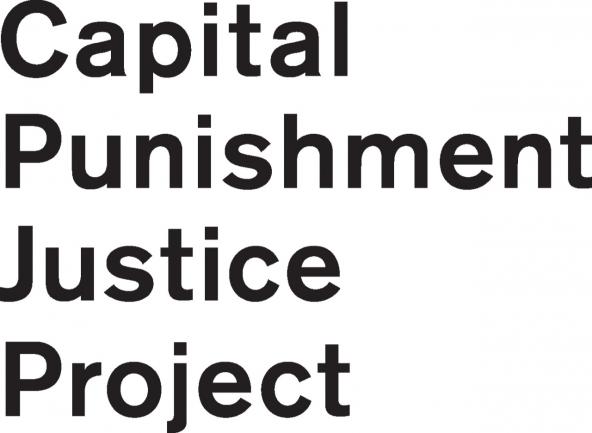
Member(s)
Capital Punishment Justice Project (CPJP)
on 30 April 2020
Capital Punishment Justice Project – CPJP (formerly known as Reprieve Australia) is an Australian NGO working to assist in the provision of effective legal representation and humanitarian assistance to those facing the death penalty at the hands of the State. CPJP also works to raise awareness of the application of the death penalty by the […]
Australia

Member(s)
Grupo de Apoyo Mutuo (GAM)
on 30 April 2020
Mandate and goals: Organization of relatives of missing persons illegally detained which works for justice, investigating past cases, opening legal proceedings against the national system and the human rights system. Kind of actions: We work for justice, for the strengthening of the institutions linked to the criminal investigation and against the death penalty. Actions aiming […]
Guatemala
Page(s)
Legal information
on 20 November 2020
Credits This website is published by the World Coalition Against the Death Penalty. Director: Aurélie PlaçaisProgram Manager: Bronwyn DudleyAdministrative and Financial Manager: Wilfred GondoroLogisitics and Partnership Manager: Carlos ValeraWeb-Editor: Hédia Zaalouni Development and production: Moduloo (J Villalard)Graphic design: Les poulets bicyclettes Hosting : OVH Copyright informationThe contents of this website is licensed under a Creative Commons license which gives […]
2020

Member(s)
Citizens United for Rehabilitation of Errants (CURE)
on 30 April 2020
Citizens United for Rehabilitation of Errants (CURE) is a grassroots organization that was founded in Texas in 1972. It became a national organization in 1985. CURE believes that prisons should be used only for those who absolutely must be incarcerated and that those who are incarcerated should have all of the resources they need to […]
2020
United States

Member(s)
European Saudi Organization for Human Rights (ESOHR)
on 29 November 2023
Founded in 2013 in response to extensive human rights abuses in Saudi Arabia, European Saudi Organization for Human Rights (ESOHR), which is based in Berlin, emerged in the face of a robust campaign aimed at suppressing civil society and curtailing the activities of human rights advocates. ESOHR is committed to the abolition of the death […]
2023
Saudi Arabia
Document(s)
Note verbale dated 11 March 2011 from the Permanent Mission of Egypt to the United Nations addressed to the Secretary-General
By United Nations, on 8 September 2020
2020
United Nations report
Afghanistan
Antigua and Barbuda
Bahamas
Bahrain
Bangladesh
Barbados
Botswana
Brunei Darussalam
Central African Republic
Chad
China
Democratic People's Republic of Korea
Democratic Republic of the Congo
Dominica
Egypt
Equatorial Guinea
Eritrea
Eswatini
Ethiopia
Grenada
Guinea
Guyana
Indonesia
Iran (Islamic Republic of)
Iraq
Jamaica
Kuwait
Lao People's Democratic Republic
Libya
Malaysia
Moratorium
Myanmar
Niger
Nigeria
Oman
Pakistan
Papua New Guinea
Qatar
Saint Kitts and Nevis
Saint Lucia
Saint Vincent and the Grenadines
Saudi Arabia
Sierra Leone
Singapore
Solomon Islands
Somalia
Sudan
Syrian Arab Republic
Tonga
Trinidad and Tobago
Uganda
United Arab Emirates
Yemen
Zimbabwe
aresfrruzh-hantMore details See the document
The permanent missions to the United Nations in New York listed below have the honour to refer to General Assembly resolution 65/206, entitled “Moratorium on the use of the death penalty”, which was adopted by the Third Committee on 11 November 2010, and subsequently by the General Assembly on 21 December 2010 by a recorded vote. The permanent missions wish to place on record that they are in persistent objection to any attempt to impose a moratorium on the use of the death penalty or its abolition in contravention of existing stipulations under international law, for the following reasons:
- Document type United Nations report
- Countries list Afghanistan / Antigua and Barbuda / Bahamas / Bahrain / Bangladesh / Barbados / Botswana / Brunei Darussalam / Central African Republic / Chad / China / Democratic People's Republic of Korea / Democratic Republic of the Congo / Dominica / Egypt / Equatorial Guinea / Eritrea / Eswatini / Ethiopia / Grenada / Guinea / Guyana / Indonesia / Iran (Islamic Republic of) / Iraq / Jamaica / Kuwait / Lao People's Democratic Republic / Libya / Malaysia / Myanmar / Niger / Nigeria / Oman / Pakistan / Papua New Guinea / Qatar / Saint Kitts and Nevis / Saint Lucia / Saint Vincent and the Grenadines / Saudi Arabia / Sierra Leone / Singapore / Solomon Islands / Somalia / Sudan / Syrian Arab Republic / Tonga / Trinidad and Tobago / Uganda / United Arab Emirates / Yemen / Zimbabwe
- Themes list Moratorium
- Available languages مذكرة شفوية مؤرخة 11 آذار/مارس 2011 موجَّهة إلى الأمين العام من البعثة الدائمة لمصر لدى الأمم المتحدةNota verbal de fecha 11 de marzo de 2011 dirigida al Secretario General por la Misión Permanente de Egipto ante las Naciones UnidasNote verbale datée du 11 mars 2011, adressée au Secrétaire général par la Mission permanente de l’Égypte auprès de l’Organisation des Nations UniesВербальная нота Постоянного представительства Египта при Организации Объединенных Наций от 11 марта 2011 года на имя Генерального секретаря2011年3月11日埃及常驻联合国代表团给秘书长的普通照会

Article(s)
Expanded Ban on Death Penalty for Intellectually Disabled People in California
By Louis Linel, on 1 September 2020
The California State Legislature extended the ban on capital punishment for intellectually disabled people
2020
Intellectual Disability
United States
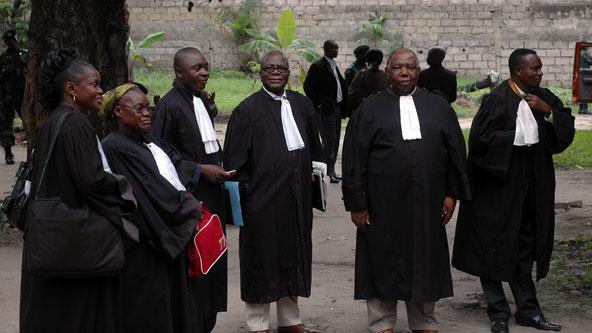
Article(s)
New defense manual to help lawyers in capital cases worldwide
By Thomas Hubert, on 29 May 2013
The World Coalition, together with Death Penalty Worldwide and the law firm of Fredrikson & Byron P.A., has launched the English and French editions of a manual compiling guidelines for defense lawyers whose clients face the death penalty at the 5th World Congress Against the Death Penalty.
2013
Legal Representation

